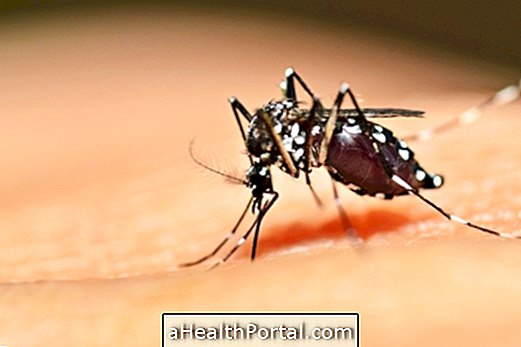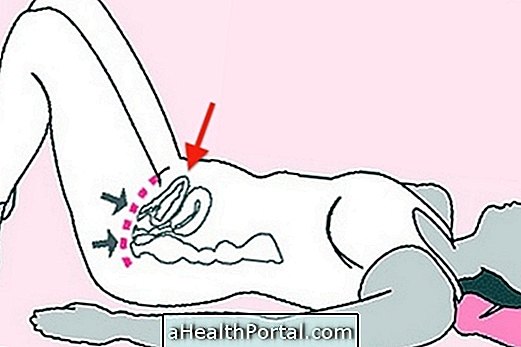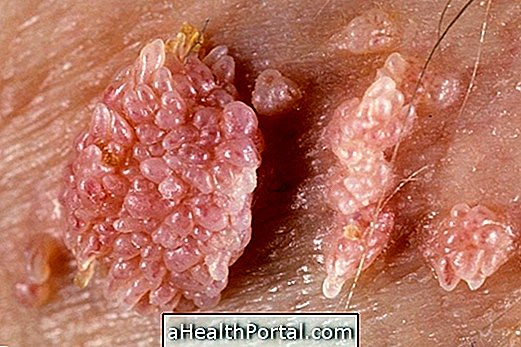The dengue-causing Aedes Aegypti, Zika and Chikungunya, is very similar to the stilt, but has specific characteristics that differs from any other mosquito. In addition to its white and black stripes, the mosquito has some habits that help to identify it.
The dengue mosquito, besides being silent:
- Usually stings during the day, especially in the early morning or late afternoon ;
- It strikes mainly in the legs, ankles or feet and its sting usually does not hurt or itch;
- It has a low flight, with a maximum of 1 meter distance from the ground.
In addition, Aedes is more common in summer, being recommended to use repellents, use insecticide in the house or put mosquito nets on the doors and windows. A natural way to fend off the mosquito is to light citronella candles indoors.

The mosquito that transmits dengue, Zika and Chikungunya is also the main responsible for the transmission of yellow fever, so it is important to fight it, avoiding the accumulation of standing water in containers such as cups, tires, bottle caps or potted plants .
Characteristics of the Aedes Aegypti mosquito
The mosquito has the following characteristics:
- Size: between 0.5 and 1 cm
- Color: has black color and white scratches on legs, head and body;
- Wings: has 2 pairs of translucent wings;
- Paws: has 3 pairs of legs.
This mosquito does not like heat, so in the hottest times of the day, it is hidden in the shade or indoors. Although it usually stings during the day, this mosquito can also itch during the night.
How to fight Aedes Aegypti
A new proposal to combat the mosquito is to let the females lay their eggs in a container with clean water and when the larvae begin to form, the water is eliminated.
This possibility has not yet been recommended, but second researchers are a great way to eliminate mosquitoes because females die after laying their eggs and with these being eliminated at the right time, the population of Aedes Aegypti would actually decrease.

To adopt this new means of fighting the dengue mosquito and Zika it is advisable to leave a glass of clean water in a strategic place where it is seen daily, such as on a small table on the porch of the house, for example.
The resident must observe and change the water every day. Whenever there are larvae, a little chlorine or bleach should be used to kill the larvae, then the water is removed by throwing it into the toilet and giving a discharge. After this procedure, the beaker should be washed so that it can be used again.
According to the researchers, this strategy to combat the dengue mosquito and Zika is more effective than using sprays and smoke that can harm the environment.
How to avoid standing water
To combat the dengue mosquito, it is important to avoid the existence of places or objects, such as lids, tires, vases or bottles, that can accumulate standing water, facilitating the development of the mosquito. Therefore it is advised:
- Keep the water box closed with the lid;
- Clean gutters by removing leaves, branches and other objects that may prevent the passage of water;
- Do not allow rainwater to accumulate on the slab;
- Wash weekly tanks used to store water with soap and brush;
- Keep barrels and barrels of water well capped;
- Fill the pots with sand;
- Wash once a week the pots with aquatic plants, using brush and soap;
- Keep the empty bottles upside down;
- Deliver the old tires in the urban cleaning service or store them without water and sheltered from rain;
- Place the trash in closed bags and close the trash well.
Another way to avoid the development of the dengue mosquito is to place a natural larvicide on all the dishes of plants, mixing 2 tablespoons of coffee grounds in 250 ml of water and adding to the dish of the plant, repeating this procedure every week. See what you should do to prevent this disease in Learn How Transmission of Dengue is Made.
Anvisa has already approved the use of a biological larvicide, called Biovech, which is capable of killing dengue lavas and mosquitoes in as little as 24 hours, leaving no toxic waste that could harm the environment and is therefore safe for man, animals and plants.
Here's how to avoid being bitten by Aedes Aegypti in the video:

See more tips on how to prevent mosquito breeding in:
- Dengue prevention
- Natural insect against dengue























